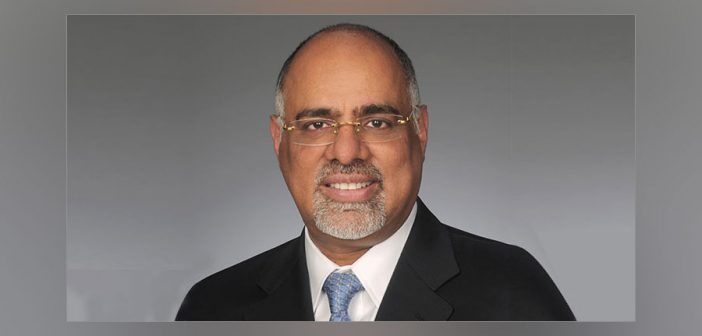Rajamannar, the new President of World Federation of Advertisers, talks about the need to adapt to technology & innovation and more
Mastercard’s Chief Marketing and Communications Officer Raja Rajamannar who was named the new President of World Federation of Advertisers (WFA) on Tuesday says technology can enhance, evolve and increase the impact of marketing.
Marketers will need to adapt quickly to the pace of technology and innovation, he said in an interview after the announcement.
Below are excerpts:
How important is purpose for brands today?
The way in which consumers perceive and interact with brands has greatly changed in the last few years. There is an increasing expectation that brands should not only have a point of view on cultural issues, but they should also be taking action to affect positive social change. We are in the age where brands today are defined by their impact on the world. Purpose is not just about going green or giving to charity. Those things are important, but purpose needs to be something that is embedded into the business strategy of the company and felt by consumers as they touch and experience the brand across the world.
How should advertisers work with external parties?
Vendors and agencies should be embraced as partners, integral to the team and invested in the advancement of the business and brand. Unique perspectives and diverse backgrounds make for stronger ideas and allow us to better see our blind spots. However, it’s a two-way street, external consultants need to understand and embrace our objectives and brand values in the pursuit of delivering impactful work.
How is technology changing marketing and has the industry done enough to stay ahead of the curve?
Today, many CMOs have bigger technology budgets than some CTOs of those companies. This is evidence that technology can really enhance, evolve and increase the impact of marketing. However, I believe there has been too much time spent superficially dabbling in technology platforms like AR and VR for limited purposes. We have reached a tipping point in the digital transformation of marketing, where hype has moved to reality and we are going to see the practical use cases for new technologies advance exponentially. This is the moment where marketers will need to adapt quickly or get left behind. We need to stay constantly curious, take thoughtful risks, and scale fast, as the pace of technology and innovation will not slow down anytime soon.
How does the marketer talent base need to change?
Talent transformation needs to be at the top of every CMO’s priority list. Our industry has changed more in the past five years than in the preceding 20 and we are now facing an existential talent crisis. Today, it’s not only important to be classically trained in the field of marketing, you need to understand public relations, digital technologies, data science, business models and drivers. Marketers need to be general managers, not just functional specialists. As new marketers come through, it is important that they diversify their skill sets and learn the fundamentals of how to build both a brand and a business. Gaining diverse experience via stints in various business areas will be critical.
How can we make marketing more attractive for the best talent?
Marketing is the rare function that exercises both the right and left brain, a combination of the creative and the analytical, which is holistic and gratifying. Indeed, the rise of digital technologies and new platforms has made marketing even more compelling and dynamic than ever before. But when it comes to attracting talent, we need to do a better job of bringing this to life. A great place to start is in the classroom. Our field is fast changing and the syllabi should reflect these changes. Today many universities are teaching outdated curriculums. We should be partnering with universities to share our latest case studies, tapping marketing students to help solve real-time challenges, and even engaging and inviting professors to spend time in the field.
How can marketers reassure consumers about the way they use data?
Every marketer must first remember that they are a consumer themselves. Think about your own preferences and how you want to be treated. The core tenets of GDPR: accountability, transparency, consent and individual rights are principles every marketer should be aligned with and think through as they develop and activate programmes.
–
This article first appeared in www.exchange4media.com
Seeking to build and grow your brand using the force of consumer insight, strategic foresight, creative disruption and technology prowess? Talk to us at +9714 3867728 or mail: info@groupisd.com or visit www.groupisd.com

